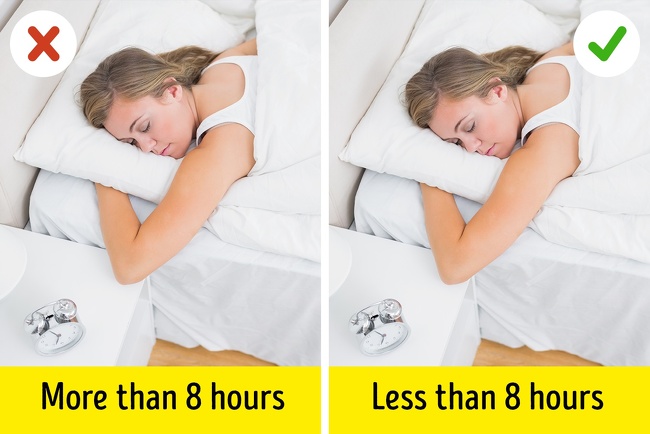The American Society for Reproductive Medicine has found that 40% of women of different ages know very little about their own bodies. The absence of this important knowledge leads many women to depend on information from myths and different sources on the Internet. Unfortunately, a lot of this advice is not only false, but it can be harmful to one’s health.
We have collected the most common myths about women’s health and found the arguments to refute them. If you have questions about women’s health and what to do to avoid following misconceptions, this article will be quite helpful.
Myth № 1: Birth control pills don’t have any side effects.

Many people believe that birth control pills are an easy way to forget about possible pregnancy. But the female body is changed unnaturally by these pills and they can have permanent effects. Don’t prescribe the pills yourself after reading good reviews online. The most common side effects you can have from birth control pills are irregular periods, nausea, headaches, and mood swings. They can appear at the very beginning of taking the pills or they can be present all the time. Remember, if you suffer from losing consciousness, high blood pressure, and high sugar levels, you should see a doctor.
Myth № 2: You can’t get pregnant while taking birth control pills or right after taking them.

Many women really can’t get pregnant for a few months after they stop taking birth control pills. But a 2009 study shows that about 20% of women (which was about 60,000 women) were able to get pregnant one month after they stopped taking the pill.
Besides, there’s a small risk you could get pregnant even while taking birth control pills. On average, 2-3 out of 100 women get pregnant while taking birth control pills. The reason may be that the pills were not well suited for the individual, which is why you should always consult your doctor and see if there are any changes in your health while on birth control.
Myth № 3: All infections are caused by bad hygiene.

Female genitalia has its own way of killing bad bacteria and letting good bacteria survive. If the acidity, or pH is more or less than the normal level, bad bacteria can reproduce faster. This bacteria growth leads to infections, itching, irritation, and unpleasant smells. Certain scented soaps and shower gels can destroy a woman’s natural pH, causing infections to develop. Choose soaps with a neutral level of pH or simply use warm water. Don’t do anything without a doctor’s recommendations.
Myth № 4: Miscarriage is a rare occurrence.
Unfortunately, studies show the opposite. On average, 17% of pregnancies end with miscarriages. That’s why when you are pregnant, you have to pay extra close attention to your health.
Myth № 5: There’s nothing you can do about menstrual pain.

According to statistics, 59% of women experience bad pain during menstruation. 20% of women said that the pain doesn’t allow them work or leave home during their periods. There are a few ways to decrease this level of pain. Research shows that warm compresses, staying away from alcohol, drinking coffee, and getting a lot of rest can help lessen the pain.
According to some calculations, around 10% of women suffer from endometriosis — this is a condition when the uterus cells spread to other organs causing painful spasms. If you can’t stand the pain on these days and don’t think that it’s normal, you should see a doctor who can recommend treatment.
Myth № 6: Menstrual pain disappears after pregnancy.
The common myth that pregnancy and giving birth can help treat many women’s diseases is not true. Every situation is different from woman to woman. Some time after giving birth, you will notice that menstrual pain may have reduced, but later, the unpleasant sensations will most likely return.
Myth № 7: Women become monsters once a month.

Scientists still can’t understand how hormones influence people and haven’t noticed any significant changes in the way women feel or think during menstruation. Our hormonal balance influences our mood just as much as other little things that irritate us do every day.
Myth № 8: Your second pregnancy will be the same as the first.

Your doctor can use the information about your previous pregnancy to help you with your second one, but they can’t guarantee that everything will go exactly the same way. For example, some pregnancy symptoms can start earlier and be more intense than they were the time before.
Myth № 9: It’s okay to sleep while wearing a tampon.

The manufacturers of tampons warn us that using them can increase our chances of getting toxic shock syndrome. This is a very rare disease that can lead to death. Don’t use a tampon at night if you sleep more than 7-8 hours.
Myth № 10: You can sunbathe when you are young but not when you are old.

Ultraviolet radiation is dangerous at any age — it causes premature aging of the skin and can lead to cancer. Experts advise using sunscreen even when you are driving on a sunny day. And never forget to put sunscreen on your face, neck and ears.













